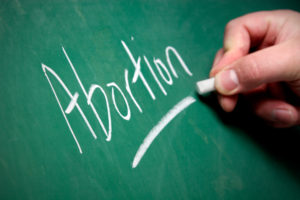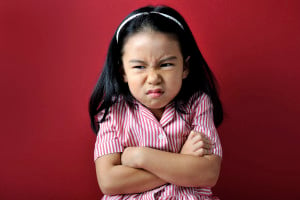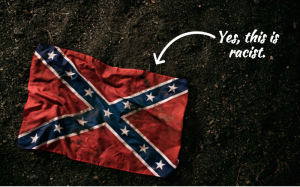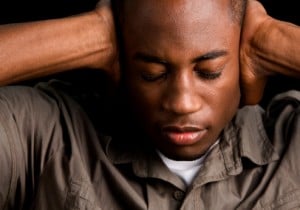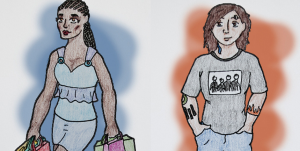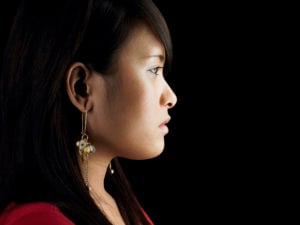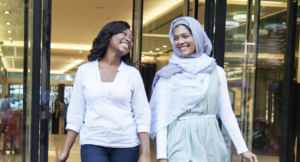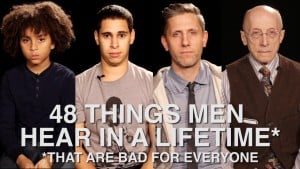As many of you know, I am a young, naïve, idealistic college student who is just trying to learn about the world and figure shit out.
I’m also a Women’s Studies major, which often gets quite a few groans, maybe some insults from commenters. I want to say from other people in my life, but mostly from commenters.
I think there are quite a few misconceptions about being a Women’s and Gender Studies major, so I wanted to answer some of your guys’ questions about my experience has been like. Also, what even is the alternative for “you guys?” Words are so unnecessarily gendered, man.
I asked you all what your questions were about just the study of women, and y’all – I can’t say y’all, I can’t say it. Y’all? You all? – gave me some really good questions on Twitter and Tumblr, so here we go.
1. How Do Other Students React When You Tell Them Your Major? How Did Your Family React?
Typically, most other students that I come into contact with are either in my Women’s Studies classes, so it’s fine, or they’re in Communication Studies classes. I think Communications is super important obviously, but it’s also accused of being a useless major. I don’t really think Comm students are going to be too judgy about it.
When I told my family about it, I had already been studying English for three years, so when I was like, “Yo, I’m going to switch from English to Women’s Studies,” they were just kind of like, “You know what, there’s no worse. We’re not getting any worse here.” It’s a pretty lateral move in the eyes of parents thinking your major is useless.
2. What Is the Homework Like?
Just like so much reading and so much writing.
But it is kind of cool because generally in my classes, either we don’t have a textbook or we have a textbook along with multiple other readings from different writers. It’s refreshing to get a new perspective every night instead of having to read the same dull textbook every single day and getting super tired of it.
I’m also a Communications minor, so I’m always really surprised when it’s just like one essay for the whole semester. What I’ve noticed is that Women’s Studies tends to be more essay-based, and rarely will I have an exam or a quiz in a Women’s Studies class. We will have three or four essays.
3. Could You Discuss If People Bring in Their Axes of Privilege and Oppressive Bias and How That Plays Out?
Yeah, definitely. There are definitely a lot of students who at the beginning of the semester will be a little bit like white feminists.
I had to speak up about a couple white women in my classes who either tried to minimize racism, or one of them was kind of just like, “Cops’ lives matter” and just dismissed the brutality that black people and brown people face from the police.
That was frustrating, but generally when that does happen, other students who have been in the program for a while will address that and point out the different spheres of privilege that that person might be looking at things through. It’s never a big fight or a big issue. It’s normally just corrected, and then we move on from that.
4. What Jobs Can You Do with a Women’s and Gender Studies Degree, and What Do You Plan on Doing with It?
I think nowadays there’s a lot of flexibility with a lot of different majors.
I can only speak for what I want to do with my degree, which I always feel a little bit ridiculous or idealistic when I talk about it, because I’ll be talking to a Bio major who has a very specific job lined up after they graduate, and I’m just like, “I don’t know. I want to do everything.”
In my combination of Women’s Studies and Communications, I want to continue doing what I do now, where I can use social media as a tool to educate and advocate for different social issues. I’d really like to do some kind of web series or shows at some point in the future. I really like Chescaleigh’s MTV Decoded and Laci Green’s MTV Braless. I think that those are really cool, and I’d love to be able to do that for a living.
5. How Interdisciplinary Is Your Program?
I’d say very, because my program is interdisciplinary. I get to take classes from all different types of subjects. I’ve taken Psychology classes, Anthropology classes, Sociology, Criminal Justice, History, Communications, English, you name it.
Which I think is really cool because a lot of the time, if I do get criticism from other people about Women’s Studies, they like to act like Women’s Studies classes are like this tiny little bubble. Really, it’s all over the board, so you’re just taking a wide variety of different classes. I don’t know about other schools, but that’s just how my school is.
6. How Intersectional/Inclusive of Issues like Race and Disability Are the Classes in General?
I’d say very inclusive of race, less so about disability, not so much that it’s necessarily using language that’s ableist, but we don’t read a lot from disabled authors or about disability topics in general. I would say that that’s something that would be nice to learn more about.
7. Are Most of Your Classes Discussion-Oriented or Is It Just the Intro-Level Ones?
All of my classes have been 80% or more discussion oriented, which is so great.
***
Okay, so I’m going to wrap it up, because I’m sure this is probably really long, but I did get a lot of questions asking my favorite texts that I’ve read, so I’m going to link those below in the description.
Anyway, thank you for watching this video. If you enjoyed it, please give it a like and subscribe to this channel for more videos like this one.
Also, this is completely voluntary, but if you’d like to help support Feminist Fridays and this channel, then please consider donating to my Patreon page which will be linked below.
My favorite feminist texts:
- Feminism is for Everybody by bell hooks
- “Mapping the Margins: Intersectionality, Identity Politics, and Violence Against Women of Color” by Kimberle Crenshaw
- Excluded by Julia Serano
- This chapter from No Turning Back: The History of Feminism and the Future of Women by Estelle Freedman
- “Evil Deceivers and Make-Believers: On Transphobic Violence and the Politics of Illusion” by Talia Mae Bettcher
- “Housework, Feminism, and Labor Activism: Lessons from Domestic Workers” by Monisha Das Gupta
- “The Culture of Poverty, Crack Babies, and Welfare Cheats” by Ortiz and Briggs





